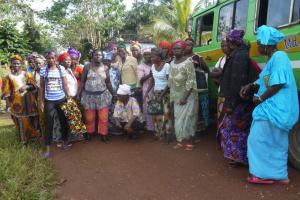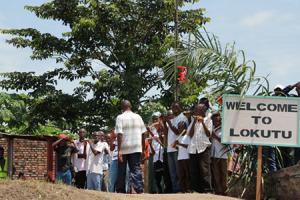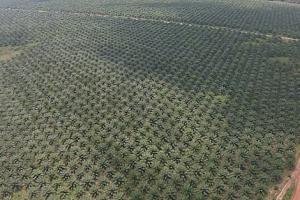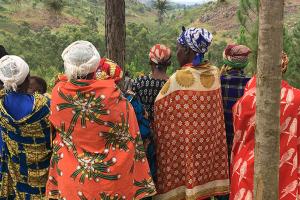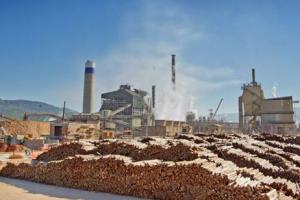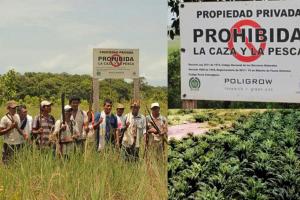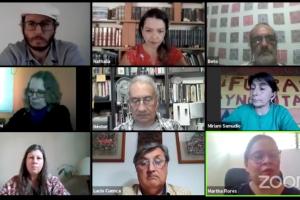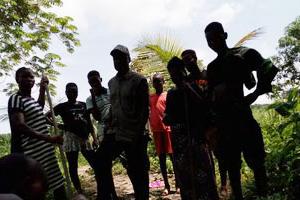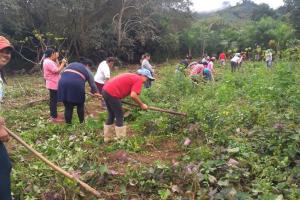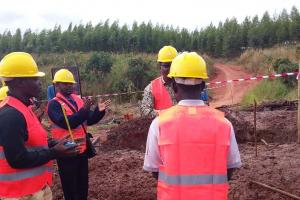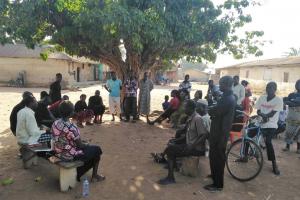Struggles Against Tree Monocultures
Corporate profit drives land grabs to install industrial tree monocultures. Where industrial plantations take root, communities' territories and lives are violently invaded, their forests destroyed and their water polluted. When communities resist, companies tend to respond with aggression. Despite this extreme violence, communities around the world are resisting, organizing and joining forces to defend their territories. Every September 21 the International Day of Struggle against Monoculture Tree Plantations is celebrated.
Why haven't Africa's post-colonial governments dismantled the colonial plantation model of exploitation and extraction, returned the lands to their people and emboldened a resurgence of Africa's diverse, local food and farming systems?
European development banks have financed a plantation company in DRC that is built on injustice and violence dating back to a colonial-era land grab. When the company went bankrupt in 2020, the banks chose to uphold the plantation model.
Despite the various tactics that try to hide the underlying harm and violence behind large scale tree plantations, each year, communities and movements raise up on September 21st to give visibility to their struggles and to denounce the detrimental impacts tree plantations have on their lives and territories.
The large-scale plantations from UK-based New Forests Company (NFC) have meant violence for thousands of residents from Mubende, Uganda. More than 15 years after the company began its operations, affected communities still confront the long-lasting and severe damages.
Several of Sappi’s plantations have been converted from pine to eucalyptus trees without authorization. Data obtained in over 75 years to verify timber plantations’ water use demonstrate that eucalyptus trees use 30 to 50% more water than pine trees.
Colombia: Palm-Producing Company Poligrow Plans to Grab more Land under the “Small Producers” Scheme
Violence, massacre and forced displacement in the context of the armed conflict in Colombia have served to advance the industrial cultivation of oil palm. Palm-producing company Poligrow has an undeniable role in land-grabbing and intimidation in the municipality of Mapiripán.
Conversatorio virtual realizado el 21 de Septiembre de 2020, en conmemoración del Día Internacional de Lucha contra los Monocultivos de Árboles. Organizado por la Red Latinoamericana contra los Monocultivos de Árboles (Recoma).
While palm oil companies present themselves as benevolent donors during the pandemic, communities living in and around these plantations tell another story. Activists against industrial oil palm plantations talk about communities’ situation since the Covid-19 outbreak.
With the Covid-19 crisis, the initiatives of movements and collectives based on feminist economics have gained strength. Feminist economics leads us to reflect on the updated mechanisms of control, while continuing to affirm the capacity for resistance and reconstruction of bodies in movement.
In response to an article that was published in WRM’s bulletin, Missão Tabita and WRM received letters from the plantation company, Portucel, and the organization, ORAM. The letters claimed that the article was untrue; however, neither Portucel nor ORAM could prove that the information published was not true.
The Norwegian company APSD is establishing industrial eucalyptus plantations in Ghana for biomass fuel, which is considered a "carbon neutral" fuel. The Youth Volunteers for the Environment in Ghana spoke with communities affected by these plantations.
